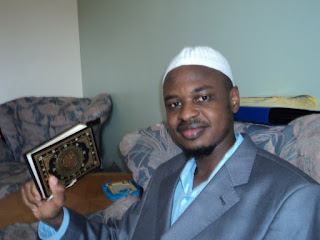I
am not a writer. I am not even sure I am a reader –and this is not just by
being modest. What I am sure of, however, is that I am a conscious observer of
my society, and the literary community –as a conscientious microsome of this society
– is one of my endearing spaces. This is why I flirt with writers, creative
works, and literary events. Kindly permit my "sonbolation" (the
non-initiates should read nose-poking) into this
family affairs.
All
reasons outlined by the advocates of KabaFest boycott border on our shared
humanity, and partly on the politics of exclusion which is the trademark of the
CEO of Kaduna state –Mallam Nasir el-Rufai – and the government that is bankrolling
the event. All humans –and this is the broader demography that encapsulates the
writers – should frown at extrajudicial killings, politics of hatred and
division, tacit support to criminal herdsmen, nepotism and prebendal politics.
There is no debate here, at all.
Where
we disagree is: where, when and how do we engage a government that is accused
of the afore-listed? A due attention to the pragmatism of 3Cs –consultation, consolidation
and (before) confrontation, or a rabble-rousing and cyber-brigandage
spearheaded by a narcissistic character that has axe to grind with El-Rufai,
not necessarily because of the popular misdeeds of his government, but because
of personal vendetta with literary figures that are his friends? At my age and
education, I wouldn't be fighting your personal fights, as pawns –fuelled by
cliques, camps and rivalries –under the disguise of a fight for a just social
order. And we should get this clear. Very clear.
Before
now, aside individual Facebook posts and random essays, did the
concerned-writers-calling-for-boycott ever charge the publicly-known writers'
organisation on the need of taking public stance against the Kaduna state government,
or have they –under any of the popular adhoc pseudonyms – organized a united
front to call Kaduna state to order? There are plethora of reasons that can be
thrown for not doing this, and this suggests "god for all writers, all
writers for themselves".
Each
and every writer for his or her soul, and the discharge of his act in
accordance with his or her social principle. Those who strongly believe boycott
it is for them should do, and those who differ should be allowed to live and be
without hanging a pendant of treachery on them. This siege mentality
contravenes the very tenet of sane society.
Because
promotion of literature and literacy is highly supportive of a developed
society, and more needed in the north of the Niger, I strongly support the
literary event. But, the organisers should not lose sight of being the
conscience of the society. The friends of our emperor governor among the
literary community should call him to order, and the literary event should make
a public stand on the state of the nation –specifically Kaduna state.



